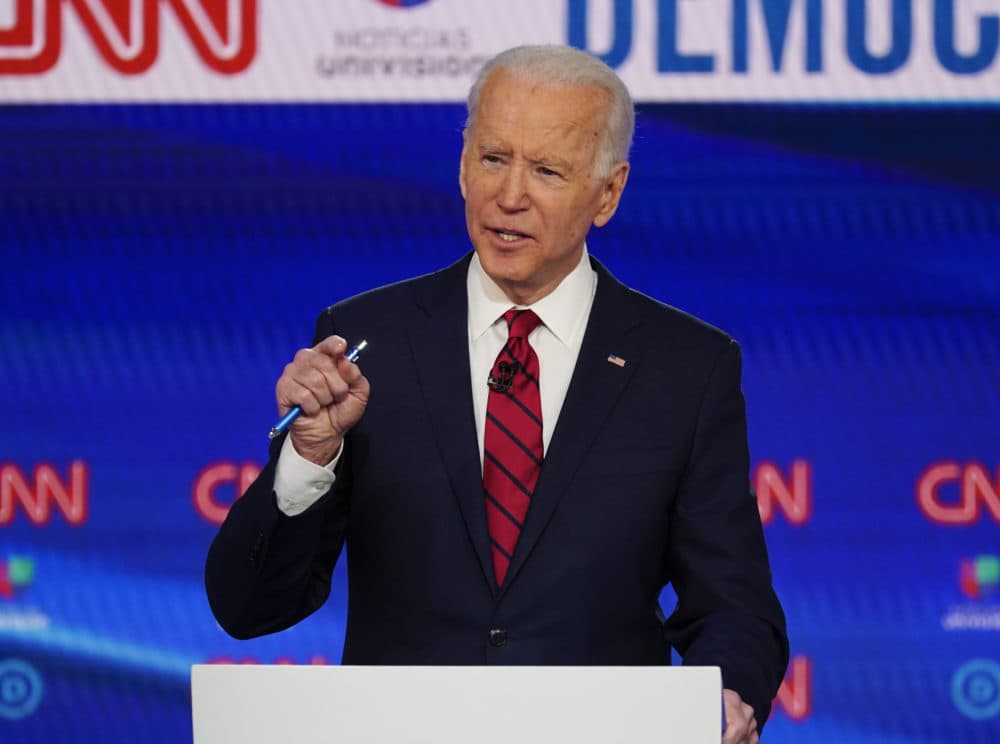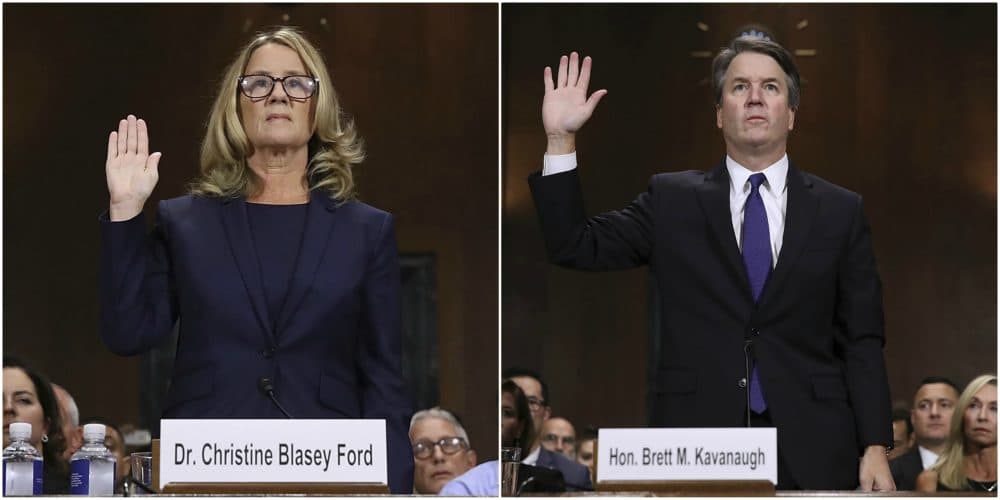Advertisement
Commentary
Tara Reade’s Bad Timing Isn’t Her Problem — It’s Ours

Tara Reade's allegations about Joe Biden could not come at a worse time.
As the nation grapples with the twin emergencies of the COVID-19 pandemic and the Trump presidency, voters are now split over whether to demand a hearing for Reade’s decades-old claim or close ranks and defend Biden. As many of us struggle to focus on anything more than the virus and Trump’s massive mismanagement of it, the stakes feel impossibly high: silence a survivor or weaken Trump’s challenger.
Reade alleges that Biden sexually assaulted her almost 30 years ago when she worked for him. Biden denies the allegations. She did not file a police report at the time, but has, through the years, told a changing story of a disturbing sexual experience with an unnamed senator. Last year, Reade joined a group of women who said they had been inappropriately touched by Biden.
While the story has failed to gain traction during the pandemic, a new supporting account by Reade’s neighbor at the time of the assault has prompted many, including MeToo founder Tarana Burke, to make statements that survivors deserve a hearing. Reade's allegations resurface as Biden rolls out a series of high-level endorsements, including an online town hall with Hillary Clinton on Tuesday addressing how women, and especially victims of domestic violence, are impacted by COVID-19.
What we have to do is listen -- not only when it serves a political agenda, but precisely when it seems too costly politically to do so.
But we should be clear: As long as there are no fair processes for reporting — not 25 years ago for Tara Reade and not now — survivors will always interrupt the main story. They dredge up the past, dragging us with them into the complexity of trauma and injustice. But bad timing is not survivors’ fault and no one should demand they wait for a better time before speaking out.
What we have to do is listen — not only when it serves a political agenda, but precisely when it seems too costly politically to do so. It’s clear Republicans don’t care about sexual assault, and they will exploit the accusations against Biden without regard for the hypocrisy of their position given that Trump has more than two dozen documented allegations against him.
There is no "good" time for Tara Reade to get a fair hearing. We have to figure out how to react to the untimeliness of allegations coming forward during fraught political moments. We should not want allegations to linger, nor pretend there will be a better time to look into them later.

The MeToo movement should mean that we do not have to stake our political salvation on silencing survivors. That's a lousy bargain for everyone — and survivors should not be shamed into accepting it. I am not at all convinced we sacrifice the greater good of maintaining Biden’s candidacy by sacrificing a willingness to hear Tara Reade. That is a feel-good untruth — a lie based in a political calculation that we are stronger when survivors are silent about the harm men do. This bad faith is far worse than bad timing.
Many have questioned Reade’s motivations, including those who don’t want to push her allegations back into the shadows that MeToo has done so much to illuminate. After all, the allegations are not new. So why are we hearing about them now? If her claims were investigated when Biden was vetted as Obama's VP pick, why were they not disqualifying?
Reade's allegations recall the belated airing of Christine Blasey Ford's claims about Brett Kavanaugh and why FBI background checks failed to follow up on the whispers around the Supreme Court justice's youthful drunken behavior. And Blasey Ford came forward, as did Anita Hill, when the timing was both political and urgent.
Does anyone believe such allegations are unlikely to come forward in the future? How will we deal with them then? Will it be any better if we don’t figure out how to hear Reade now?
Loathe to repeat the silencing of Hill and Blasey Ford, feminists are torn. They are split about how to talk about Reade's allegations, how to listen to women and keep the momentum of MeToo moving forward the conversation about accountability, and whether to talk about them at all and risk undermining Biden. We are mad to be having this conversation at the worst possible time.
Loathe to repeat the silencing of Hill and Blasey Ford, feminists are torn.
On the biggest public stage — a Supreme Court nomination, a presidential run — my research shows that survivors are more likely to gain a mishearing than a hearing: to be discredited or dismissed as speaking up at the wrong time, to have their reputations shredded, and to be attacked for who they are rather than heard as giving testimony of what someone did to them. This is the real test of MeToo.
What should happen now has three parts: First, there should be an independent investigation that includes the new testimony of Tara Reade’s neighbor. The probe should include a survivor advocate trained in the complexities of trauma and reporting. Once the investigation is completed, Joe Biden should have an opportunity to respond. After that, we will be able to say we heard Tara Reade.
We may never know as much as we want to about what happened. People will come to different conclusions about how to weigh the outcome of this investigation. But survivors deserve the right to be heard and now is the right time to learn how to listen.
